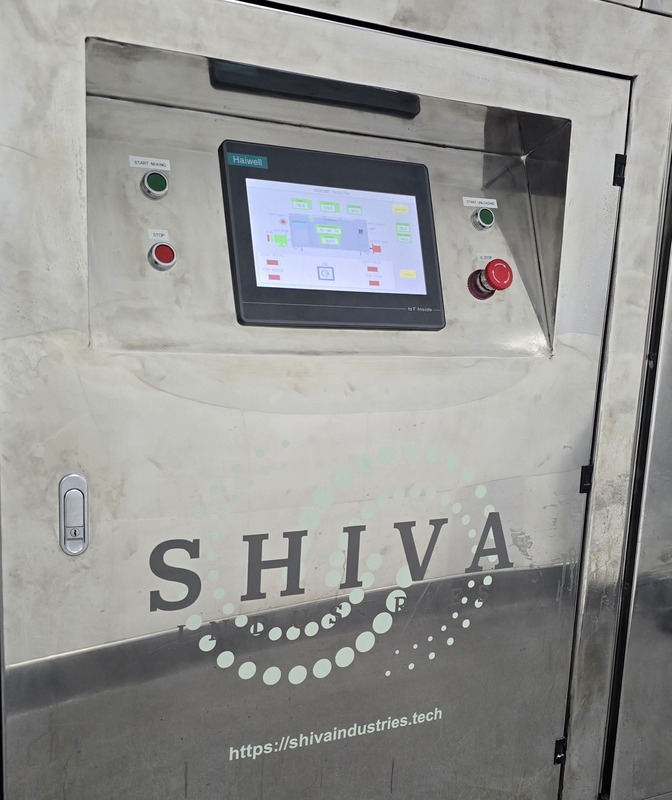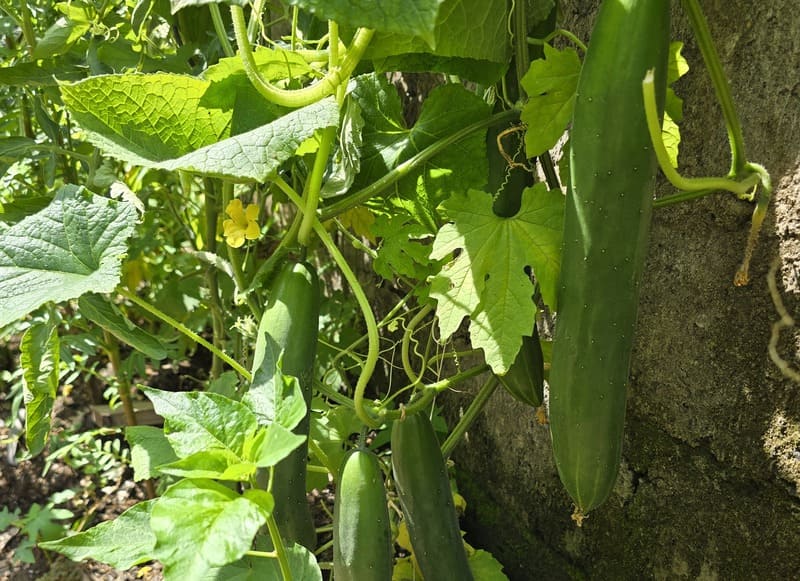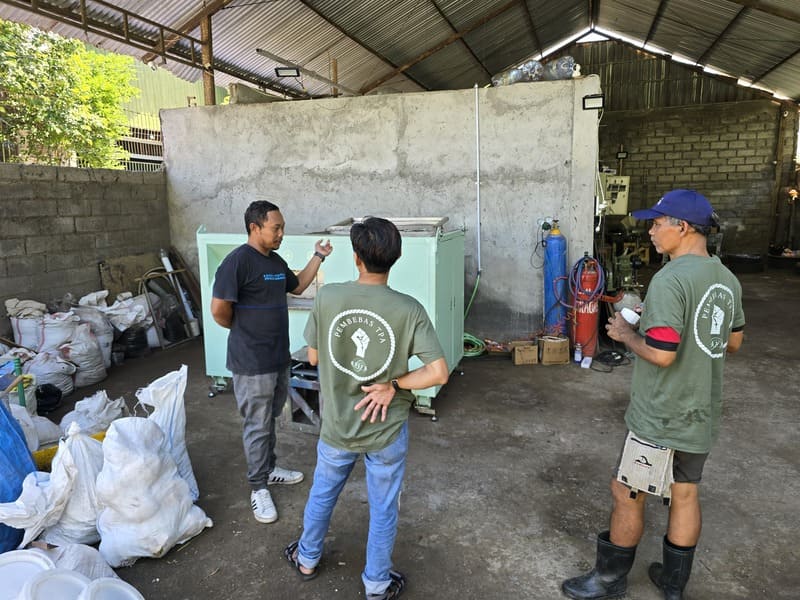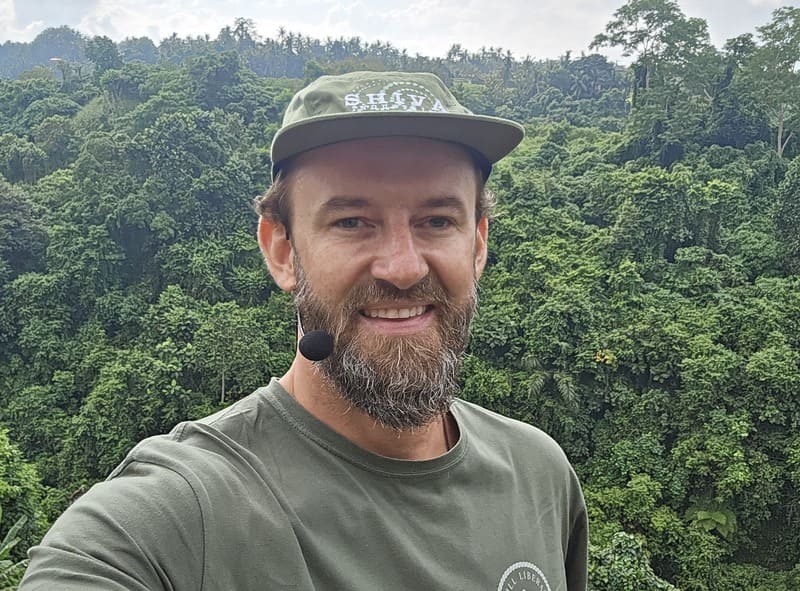Tobias Wilson, co-founder of Bali-based green-tech enterprise Shiva Industries Indonesia, shares his inspiring journey, dedication to sustainable agriculture, and why tackling Bali’s acidic organic waste is essential for the island’s future.
Tobias Wilson’s story is one of transformation and unwavering dedication to creating a greener, more sustainable future for Bali. As the co-founder of Shiva Industries Indonesia, Tobias is committed to addressing the island’s organic waste crisis and revolutionising sustainable agriculture. Through innovative technology, relentless effort, and a deep passion for the environment, he is determined to turn waste into wealth, soil into sustenance, and challenges into opportunities.
Hi Tobias, it’s great to connect! Can you tell us about your journey?
Growing up in Bendigo, Central Victoria, Australia, I was surrounded by nature. Life on the farm allowed me to witness first-hand the importance of working with the land, rather than against it. It instilled in me a deep appreciation for the cycles of nature, the beauty of self-sustainability, and the power of agriculture to nurture life. But, as life often does, my journey took an unexpected turn, and I found myself in Singapore for 17 years, working in marketing, advertising, and digital technology. While the fast-paced world of business provided me with valuable skills, something was missing. I realised I wasn’t contributing to a cause that aligned with my core values.
After years of burning the candle at both ends, I knew it was time for a change. When the opportunity arose to move to Bali with my family, I seized it. Bali’s stunning landscapes and vibrant culture made it easy to fall in love with the island. But it wasn’t long before I noticed a glaring issue — waste. It was everywhere. Seeing trash polluting the beautiful beaches and countryside sparked something inside me. I wanted to give back to this place that welcomed me so warmly, and I realised the best way to do that was to tackle the waste problem head-on.
How did this realisation lead to the creation of Shiva Industries Indonesia?
Upon arriving in Bali, I began immersing myself in the local sustainability scene, volunteering with groups like Precious Plastics and connecting with people who shared a similar vision. I soon founded BUMI: an Environmental, Social, and Governance (ESG) impact consultancy with the tagline “less virgin materials, more virgin ideas.” The company was born out of a desire to address the environmental challenges we face and help businesses reduce their reliance on virgin materials. However, one issue kept coming up repeatedly: organic waste.
Organic waste accounts for around 72% of the total waste flow in Bali, yet it receives far less attention than plastics. This struck me as a massive oversight. Why were we focusing all our efforts on plastics when the majority of the waste problem was being ignored? The turning point came about a year ago when I received a call, from a now dear friend, Heath Nicholas in the United States who introduced me to the concept of aerobic digestion. As I delved deeper into the subject, I realised this technology could be the game-changer Bali desperately needed.
In December, we built our first prototype and founded Shiva Industries Indonesia with the goal of creating machines that could transform organic waste into nutrient-rich fertiliser within 24 hours. And thus, our journey began.
For those unfamiliar, can you explain what Shiva Industries Indonesia does and how aerobic digestion works?
In simple terms, Shiva Industries manufactures aerobic digesters: machines that speed up the natural composting process by creating the ideal conditions for organic matter to break down efficiently. Our digesters use controlled heat, oxygen, and a specially formulated mix of indigenous microbes to transform organic waste into high-quality fertiliser, making it possible to complete this process in just 24 hours. The output is a nutrient-dense fertiliser that has been verified by Udayana University in Bali as pH-neutral, NPK & carbon-rich and suitable for a variety of applications, from agriculture to land regeneration and horticulture.
Traditional composting can take weeks or even months, but, with our technology, what would typically be a lengthy process is accelerated to just one day. This is crucial because it not only reduces the amount of waste going to landfills but also provides farmers and gardeners with an environmentally friendly alternative to chemical fertilisers.
Our machines are designed and built entirely in Indonesia, and even the microbes we use are sourced locally. This means our digesters are uniquely suited to handle the organic waste found in this region. Unlike some of the more energy-intensive waste management solutions out there, our machines are up to 40% more efficient, which makes them suitable for use in remote areas, powered by renewable energy sources like solar or hydro.
Why is tackling Bali’s organic waste such a priority for you?
Organic waste is one of the most pressing issues facing Bali today, and it’s a problem that extends beyond just the island. When organic waste ends up in landfills, it decomposes anaerobically, releasing methane — a greenhouse gas 86 times more harmful to the environment than carbon dioxide. It’s not just about reducing waste; it’s about addressing the significant environmental impact that organic waste has when it isn’t properly managed.
For me, the drive to tackle this issue stems from my upbringing in agriculture and my role as a father to three young children. I understand the challenges that farmers face, from soil degradation to dwindling profits due to reliance on chemical fertilisers. I want to create a world where my children, and future generations, can enjoy healthy food grown in nutrient-rich soil, not one that’s been stripped of its vitality.
The problem is bigger than Bali; it’s a global issue. However, I believe that by starting here, in a place that means so much to me and my family, we can set an example for others to follow. I want Shiva Industries to be a catalyst for change, showing that sustainable agriculture isn’t just possible – it’s necessary.
What challenges have you faced along the way, and what achievements are you most proud of?
The journey hasn’t been without its share of hurdles. Building a machine that could handle Bali’s unique waste composition wasn’t easy. We broke motors, axles, and countless pieces of equipment during our research and development phase. Our motto in the office is “Let’s break this thing” because each failure taught us something new, allowing us to refine our design and improve our product.
One of our proudest moments was when we installed our first machine at The Westin Resort Nusa Dua, Bali, and received regional approval from the Marriott Group. This validation proved that our technology works on a large scale and can make a tangible impact in commercial settings. Knowing that we’re diverting tons of waste from landfills and creating a high-quality fertiliser that supports sustainable agriculture is incredibly rewarding.
However, there’s still a long way to go. Scaling up is a challenge. The demand for our technology is enormous, but meeting that demand requires significant investment, infrastructure, and manpower. We’re constantly looking for ways to improve efficiency, reduce costs, and expand our reach. It’s an exciting, albeit daunting, journey, but the potential impact keeps us motivated.
What sets Shiva Industries apart from other waste management solutions?
Our aerobic digesters stand out for several reasons. Firstly, they’re incredibly energy-efficient, using 30-40% less energy than other similar machines on the market. This means they can be powered by renewable sources, making them ideal for use in remote areas or places with limited access to electricity.
Secondly, our machines use a unique oxygenation process that ensures complete digestion, resulting in a more nutrient-dense fertiliser. The microbes we use are specifically tailored to the organic waste found in Indonesia, which makes our digesters more effective than generic solutions. This microbiological innovation is a critical factor in achieving the high-quality output that sets us apart from our competitors.
Finally, our commitment to building a local solution for a local problem is what truly differentiates us. Everything — from the design to the microbes — is sourced from Indonesia. We’re not just selling machines; we’re providing a comprehensive, culturally appropriate solution that empowers communities to manage their waste sustainably. It also means we’re local, so maintenance and spare parts are a painless experience versus other brands from outside Indonesia.
What’s next for you and Shiva Industries Indonesia?
We have big plans for the future. We’re looking to establish new factories in Banyuwangi and Bogor to increase production and distribution capacity. By moving west, we aim to reach more communities and help them manage their organic waste effectively. We’re also exploring opportunities in Labuan Bajo and Sumbawa, where waste management infrastructure is limited, but the need is significant.
Our initial goal is to process one million tons of organic waste per year via our machines. It’s an ambitious target, but we believe it’s achievable with the right partnerships and support. We’re already working with schools, shopping malls, and other businesses to implement our technology and make a real difference in how waste is managed across the region.
Any final thoughts?
Our work at Shiva Industries Indonesia is more than just a business — it’s a mission to create a more sustainable future for Bali and beyond. By turning waste into a resource, we’re proving that even the most challenging problems can be transformed into opportunities. It’s not just about saving Bali; it’s about showing the world that with the right mindset, technology, and dedication, we can build a greener, healthier planet for generations to come.

SHIVA INDUSTRIES
- WhatsApp: +6281138885222
- Instagram: @shivaindustries.id
- Email: tobias@shivaindustries.tech
- Website: https://shivaindustries.tech




